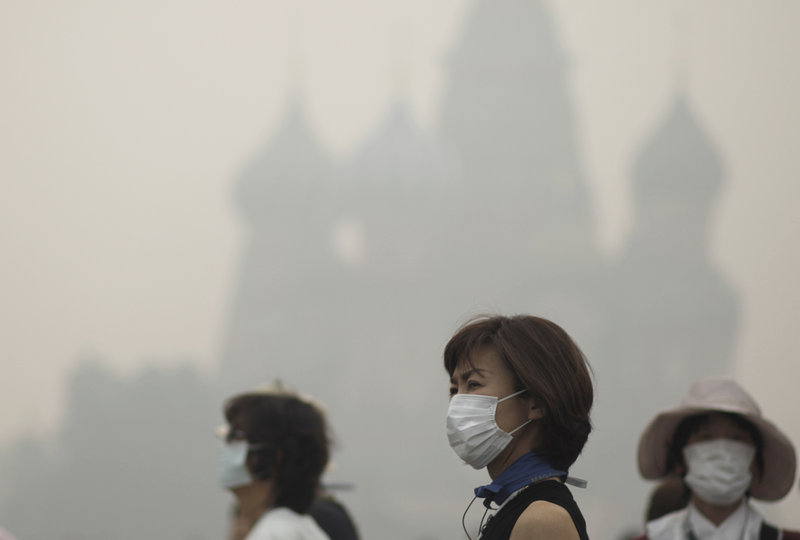SOUTH BERWICK — Threats by Donald Trump during and after his campaign echo Republican House Speaker Paul Ryan’s announced goal of reducing or eliminating the power of the Environmental Protection Agency and the laws the agency enforces. While this may save industries some costs in the short run, the long-term costs to public health and the environment are a disaster in the making. History teaches that a return to the unregulated, lax 1950s is not a direction worth seeking.
Back in the 1950s and ’60s, the Cuyahoga River, which empties into Lake Erie, was so fouled with toxic chemicals, black, heavy oil and trash that it caught fire several times. This became a major spur and a symbol for the emerging environmental movement.
The 1962 publication of Rachel Carson’s “Silent Spring” also served as a wake-up call to the dangers of unregulated toxic chemicals and their impacts on the ecosystems of our planet. In her book, she demonstrated how the indiscriminate use of DDT to control mosquitoes was concentrating up the food chain and threatening the existence of a predator, the bald eagle, the symbol of our country’s freedom.
Americans woke up and on the first Earth Day in 1970, 10 million Americans demonstrated, showing the power of an awakened and determined citizenry to respond to threats to our health and to our planet.
At that time, a patchwork of state programs encouraged companies to locate in states with lax environmental protection controls, many of them in poorer areas in the South. Equally important, it became recognized that pollution crosses state and local boundaries; downwind and downstream communities suffer the impacts of pollution from irresponsible companies without being able to influence their practices.
In Maine, Sen. Edmund Muskie – known as the father of the modern environmental movement – spearheaded efforts to pass the Clean Air Act of 1970 and the Clean Water Act of 1972. Muskie believed that environmental regulations needed enough science and scientific analysis to justify the federal government getting involved. Both bills passed with overwhelming bipartisan support from both houses of Congress.
The U.S. has become a world leader in creating and sustaining a clean environment. As a result, we have enjoyed measurable improvements in air quality, cleaner rivers and lakes, a reduction in hazardous wastes, better drinking water, preservation of wetlands and many other protections for our shared natural heritage.
Corporations found that these laws provided a rational, reasonable and geographically consistent environmental protection system: in short, a level playing field. In addition, businesses have participated in the setting of pollution limits through the regulatory process at federal and state levels.
Contrary to myths that President Trump and Republicans are trying to resurrect, environmental regulation is not a job-killer and it does not cause jobs to flee abroad. Studies of offshoring find that domestic companies move abroad for other reasons, such as lower wages, tax avoidance and easier access to international markets.
Environmental regulations may cause a reshuffling of jobs, but, more importantly, they stimulate new technologies and improve efficiency. For example, while power plant regulations may affect coal mining, the increasing demand for natural gas-fired plants is creating new jobs.
Equally important, well-crafted environmental laws and regulations shift the burden of impacts away from the public and the environment, such as polluted air and water, internalizing costs to the companies and their products, which in turn pass the costs on to consumers.
In fact, the federal Office of Management and Budget has rated the effectiveness of the EPA as among the best in the nation, with benefits typically exceeding costs by more than a 10-to-1 ratio. Trump said that he wanted to “get rid of (the agency) in every form.”
He and House Republicans have also announced their intention of gutting the Clean Power Plan, put in place by the Obama administration to reduce carbon dioxide emissions from power plants, an important effort to address global warming. In addition, the talk of abandoning the progress made by signing the Paris climate agreement would seriously jeopardize our role in the world as leaders in addressing this most critical issue facing our planet.
If you want to see how bad our environment could become, look at China, Mexico, India or parts of Russia. Citizens there choke with the foul air, and lives are shortened. We must resist any attempts to roll back the progress we have made, whether it be through adverse changes to federal environmental laws, regulations or through budgetary reductions of the EPA, which will have the same effect.
Send questions/comments to the editors.



Comments are no longer available on this story